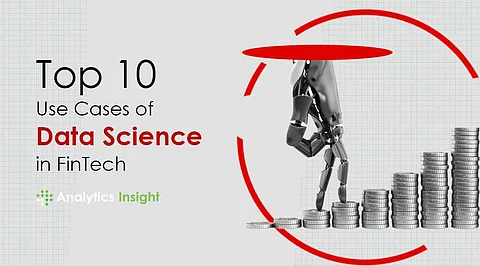

In the rapidly evolving realm of Financial Technology (FinTech), Data Science has emerged as a transformative force, reshaping the industry's landscape. This article explores the top 10 use cases where Data Science intersects with FinTech, illuminating how data-driven insights are revolutionizing areas ranging from risk assessment and fraud prevention to customer engagement and investment strategies.
As financial institutions and technology converge, these applications exemplify the pivotal role of Data Science in driving innovation, efficiency, and customer-centric solutions within the dynamic world of FinTech.
But before you get straight into the process of hiring an app developer in India, let's understand what exactly is data science and Fin Tech need data science.
Data Science is a multidisciplinary field that utilizes statistical analysis, machine learning, and data mining to extract insights and knowledge from data. It involves collecting, cleaning, and analyzing large datasets to make informed decisions and predict future trends.
Data Science is the practice of extracting insights from data using scientific methods. In FinTech, it's essential for informed decision-making, risk assessment, fraud detection, customer personalization, algorithmic trading, and more, driving innovation and efficiency in the financial sector.
Data Science has become a formidable tool for Fraud Detection and preventing fraudulent activities. By analyzing transaction patterns, customer behavior, and anomalies, advanced algorithms can identify suspicious transactions in real-time. This proactive approach not only safeguards financial institutions and customers but also minimizes losses due to fraudulent activities.
Data-driven credit scoring models leverage a wealth of information to assess an applicant's creditworthiness accurately. Machine Learning algorithms analyze credit history, transaction behavior, and alternative data sources, enabling more inclusive lending practices and enhancing risk assessment accuracy.
Algorithmic trading leverages Data Science to analyze historical market data, identify trends, and execute trades automatically. Machine Learning models predict price movements and adapt strategies in real-time, enabling financial institutions to make informed investment decisions.
Data Science enables FinTech companies to offer tailored financial products and services based on individual preferences and behaviors. By analyzing spending patterns, investment history, and financial goals, firms can provide customers with personalized advice, enhancing customer satisfaction and engagement.
Segmenting customers based on their behavior and demographics helps FinTech companies refine their marketing strategies. Data Science enables precise customer targeting, ensuring that marketing efforts reach the right audience with tailored messages and offers.
Navigating complex regulatory frameworks is a challenge for the financial sector. Data Science assists in automating compliance processes by monitoring transactions for potential violations, ensuring adherence to regulations, and minimizing the risk of penalties.
Data Science empowers investors with predictive analytics that forecast market trends and investment opportunities. These insights enhance decision-making, optimize portfolio management, and contribute to better investment performance.
Robo-advisors, powered by Data Science, provide automated investment advice to clients based on their financial goals and risk tolerance. These platforms optimize asset allocation and rebalancing strategies, offering cost-effective and efficient investment solutions.
By analyzing social media and customer feedback, Data Science uncovers insights into customer sentiment. FinTech companies use this data to gauge public perception, adapt products, and refine customer experiences.
Data Science streamlines regulatory reporting processes by automating data collection, analysis, and reporting. This not only ensures accuracy but also provides insights that can inform strategic decisions in a timely manner.
Join our WhatsApp Channel to get the latest news, exclusives and videos on WhatsApp
_____________
Disclaimer: Analytics Insight does not provide financial advice or guidance. Also note that the cryptocurrencies mentioned/listed on the website could potentially be scams, i.e. designed to induce you to invest financial resources that may be lost forever and not be recoverable once investments are made. You are responsible for conducting your own research (DYOR) before making any investments. Read more here.
